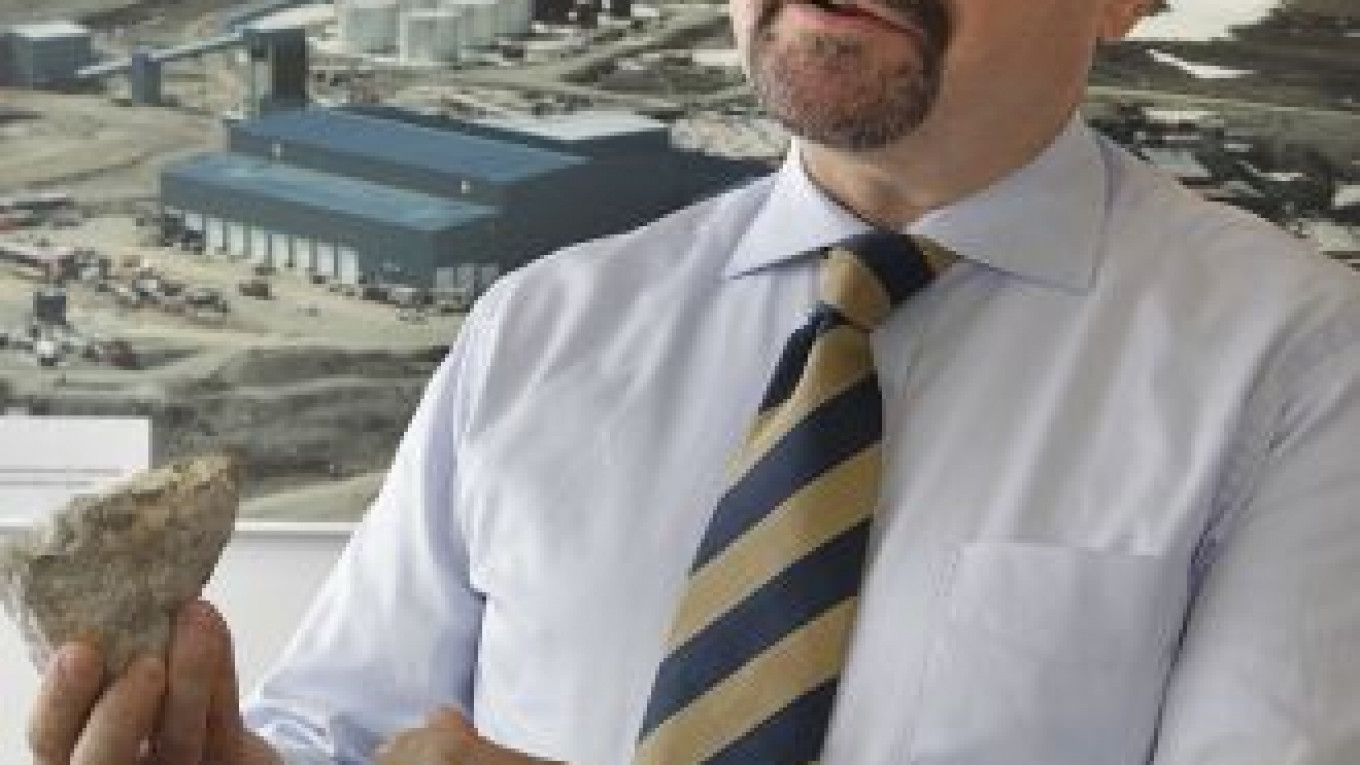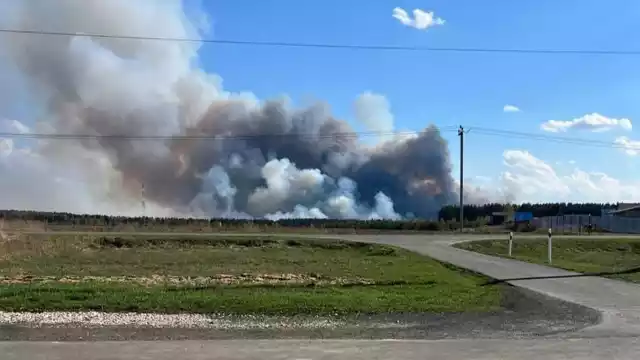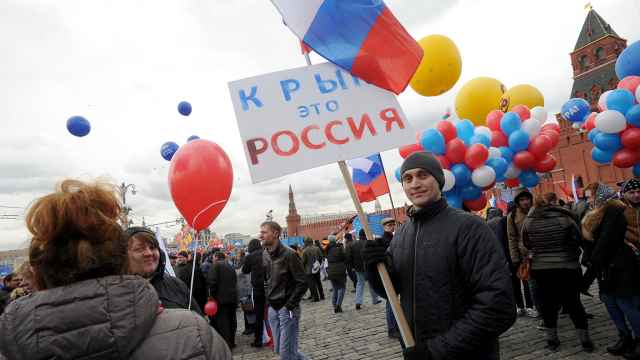By all appearances, Lou Naumovski hit the big time at the age of 25. In a single day, he met Canadian Prime Minister Pierre Trudeau, shook hands with Pakistani leader Muhammad Zia-ul-Haq and chatted briefly with Cuban dictator Fidel Castro about Castro’s love for baseball.
But the heady experience following Leonid Brezhnev’s funeral was just the beginning. Over the next three decades, Naumovski would introduce Visa credit cards to Russia, work as a senior banker for the European Bank for Reconstruction and Development, dig for gold in Chukotka and even import a record-setting 6 million doses of Canadian bull semen for Russian cows.
Education
1978 — University of Toronto (Toronto, Ontario), BA, Political Science, History
1980 — Carleton University (Ottawa, Ontario), MA, International Affairs
Work Experience
2007-Present — Kinross Gold Corporation, vice president and general director, Moscow representative office
2000-07 — Visa International CEMEA, including general manager, Russia and CIS (2000-07), and head of strategy and business planning (2005-07).
1992-2000 — European Bank for Reconstruction and Development, including resident representative and senior banker in Moscow (1992-97), and senior banker in London (1997-2000).
1990-92 — Canada-U.S.S.R. Business Council, executive director
1980-90 — Canadian Foreign Ministry, including assignments in Moscow (1982-84), Atlanta (1984-86), Baghdad (1986-88) and Ottawa, as deputy director for trade and investment development in the U.S.S.R. and Eastern European Division (1988-90).
Favorite book: “Lord of the Flies” (1954) by William Golding
Reading now: Four books, including “The Outsiders” (1967) by S. E. Hinton; “The Corrections” (2001) by Jonathan Franzen; a book on innovation on my iPad and a book recommended by my wife.
Movie pick: “Sophie’s Choice” (1982) directed by Alan J. Pakula
Favorite Moscow restaurant: Nedalny Vostok, 15 Tverskoi Bulvar, Bldg. 2
Weekend getaway destination: Le Meridien Moscow Country Club, Nakhabino, Moscow region
Perhaps even more remarkably, Naumovski achieved these career milestones by rising above high-school bullying in Toronto. As a teen — a self-described late bloomer with horn-rimmed glasses — Naumovski endured name-calling and other forms of ridicule from the more popular students, particularly the jocks.
“I was a slight kid with spectacles, very introverted, and an easy prey for bullies,” Naumovski said in an interview. “I learned to deal with it by receding further into the background.”
But things started changing on his 16th birthday, when his father, who had emigrated from Yugoslavia when Naumovski was a young boy, decided that it was time for his son to get a job. Naumovski worked on and off for the next six years as a part-time sales clerk at the Junction Bargain House, a discount store that sold clothing, toiletries, footwear and canned goods in a rough part of Toronto. It was there that he found his voice.
“I learned more in that store about dealing with people — responding to aggressive behavior, developing a personality and being more outgoing — than I ever learned in high school,” he said. “It was a great experience and one of many reasons to be grateful to my parents.”
Back at school, he resolved that if he was too small to play sports, he could at least participate as a referee at basketball and volleyball matches. He quickly got back at the athletes who ignored or demeaned him.
“I was a stickler for the rules. I love rules,” he said. “I’d say, ‘You were traveling, you were traveling. I’m not giving you any leeway.’ That helped.”
Naumovski, now 55 and head of the Moscow office of the Kinross Gold Corp., the largest foreign gold miner in Russia, holds no grudges and shared with The Moscow Times some of his own rules for success. Among them: Foreign investors should respect the Russian proverb of “trust, but verify.” The best employees exhibit sincerity and integrity. And patience is more of a virtue in Russia than in Canada.
As for his high school, Naumovski dropped by a couple of decades after his graduation and was surprised to learn that one-time bullies and other members of the in crowd had topped out as teens and never gone on to develop careers.
“I have to admit to a little bit of a payback feeling when I found out that some of the people who had peaked in high school and were not nice to their peers really hadn’t achieved much in subsequent years,” Naumovski said.
“It just shows that you can achieve things if you remain true to yourself and work hard,” he said. “Young people might feel that life is unfair if they’re not the most popular or the most talented in high school. Well, life does get better.”
Q: Why did you come to Russia?
A: I was offered a posting to Chicago during my first year in the Canadian diplomatic services. I said, “I’m not interested in Chicago. If you read my CV, you’ll see that I speak several Slavic languages. I’m really keen on going to Russia.” The Chicago offer was withdrawn as if it had never been made, and a few months later I was immersed in Russian-language training. Moving to Russia was my ideal, a dream come true.
We arrived on my wife’s birthday, Aug. 24, 1982. The first big event was Brezhnev’s death in November. We worked double-duty because our prime minister at the time, Pierre Trudeau, came to Moscow and met with heads of state before and after the funeral. I had the privilege of meeting Fidel Castro and spending half an hour with him as he waited to meet the prime minister. That same evening I also met Zia-ul-Haq. It was pretty heavy stuff for a third secretary.
My portfolio included agriculture, machinery and technology. There wasn’t a lot of trade in machinery and technology, but we were the largest supplier of wheat to the Soviet Union. My first assignment was to hand-deliver Canadian Wheat Board contracts to Exportkhleb.
My big claim to fame was helping a Canadian marketing cooperative, SEMEX, sell bovine semen to the Soviet foreign trade organization Plemskot for breeding high-quality dairy cattle. I actually signed the contract on behalf of SEMEX because their representative was absent from Moscow. This was at the time the largest-ever single sale of bovine semen, about 6 million doses.
We also sold the first Canadian manufacturing license to a Soviet enterprise. The license was for making a piece of dry-land tillage equipment called a Packer Harrow Drag Bar, which was invented in Saskatchewan and allowed minimum tillage of soil in dry land conditions to preserve the moisture in the soil and the nutrients. This equipment was very well-suited to conditions in Russia and Kazakhstan, but I don’t believe that it was ever manufactured in the Soviet Union after the sale of the license. The money that they paid to the Canadian company, however, was a lifesaver for that company.
Q: What advice would you offer an investor who wants to enter Russia or expand here?
A: We have to revel in the fact that this is a European culture, so North American or European investors should remember that Russians are not inscrutable in the way you might describe people from a more exotic Asian culture. You have to accept the behaviors that you see, and they are mostly Western behaviors.
But at the same time, you cannot be ignorant of the fact that you’re dealing with people who have experienced a different political culture for thousands of years. They don’t have the traditions of entrepreneurship, so you need to pay more attention in ensuring that you understand each other. I know that many Russians speak English and many expats speak Russian, and you may feel like you understand each other. But you must continue to, as the Russians say, “trust, but verify.” It’s easy to go out and have a beer with a Russian colleague and say, “OK, we were in full agreement.” But you won’t necessarily be sure of that unless you take the extra steps to verify.
Practice patience. I’m not a patient person, but I’m much more patient in Russia than I am in Canada. I guess I’ve conditioned myself to say in Russia, “OK, I expect this to happen, but if it doesn’t happen today, it’ll happen next week, and I’m not going to worry about it.” Whereas in Canada, if the electrician says he’s going to arrive on Tuesday and doesn’t show up, you’ve got 15 other electricians you can call. So he’s going to be there because he wants your business.
Public services are the same way. You need to be more patient here. In working with the government, which is unavoidable, you have to understand in great detail not only the agency that you are working with, but also the agency’s relationship with other agencies with overlapping authority in the area where you’re working. You have to get to know the individuals who work in the agencies as well.
If you know nothing about this country, you should find an expat who shares your fundamental values and who has the ability to function effectively here. Eventually, talented Russians will emerge who have spent enough time in the West that they want to reimport values and business practices. But many foreign companies, including Canadian ones, have come here without proper staffing — both with expats and locals, but especially expats.
Q: What is your secret for finding staff?
A: There are two absolutely essential qualities that I look for: sincerity and integrity. How to judge these qualities is the issue. Having done several thousand interviews in my career, I’ve found that this is unquantifiable. I look at gestures and the way people answer typical questions. A classic question is: “If I asked your friends to give me three of your best and three of your worst qualities, what would they be?” This is sort of a way to determine the emotional intelligence of candidates, whether they answer correctly, give pat answers, or say what they think you want to hear.
I also ask the standard question, “Where would you like to be in five years?” If the candidate doesn’t say he wants to be a more senior manager, he’s not being sincere. But if he says, “I’d like to be a vice president,” then you need to explore that and say, “What do you think you need to know?” or “How do you need to behave to become a vice president?” The answer usually reveals whether the candidate has the right attitude.
Other than sincerity and integrity, everything else can be learned.
Q: How do you retain employees?
A: That’s a little harder than finding them. Russia has a culture of entitlement, and this is understandable. Opportunities are expanding, younger people who get good degrees are multilingual, justifiably self-confident and anxious to move very quickly in terms of responsibility, title and salary. So it’s hard to retain them.
We did not pay at the top of the pay scale at Visa. But we retained people because they were given responsibility, authority, respect and the opportunity to make their own mistakes. Those things are immensely motivating. We had virtually no voluntary turnover. Ironically, the HR head at the time in London thought there was something suspect about this. He called me up and said, “That’s not healthy. Nobody’s leaving.” I said, “OK, you say it’s unhealthy. I think it provides continuity for the business, and certainly our customers, the banks, are very grateful to be able to work with the same people whom they trust and rely on.”
At Kinross, we do pay higher-than-average salaries, but again we retain people because we care about the staff, and they have better working conditions than they might have in some other companies in Russia. They value that.
We also play ice hockey with our employees. I was the coach this year of the Kinross Nuggets, which is an important dimension to the social life at the Kupol mine. The area is remote; people have to fly in and out. Miners spend anywhere from four to six weeks at a time there, where we have very good facilities for recreation. Every year, the people who play hockey go to Anadyr and play against the best teams in Chukotka. The achievements of the team are celebrated by the entire company, and this gives a sense of identity. You can measure the character of people by their attitude towards sports, and this year’s star player, one of our miners, was just phenomenal.
Q: How do you deal with corruption?
A: At Visa, I got overtures from smaller banks that wanted the cachet of being a Visa member and would ask, “What can we do to make it happen?” I said, “Well, you can pay the fee that Visa requires.” Some would say, “We can’t afford it,” and I would reply, “Yes, you can.” At first I was criticized for basically saying: “No discounts, no free ride. This is an organization that’s only as strong as the members’ willingness to enforce the rules.” But I was vindicated. Membership tripled, revenues increased by many fold, and people followed the rules.
However, in recognition of the special nature of the Russian market, we formed an association of Visa member banks, which I chaired for seven years. We had the freedom to establish special rules that would help the market to develop more quickly. The rules weren’t against Visa’s global rules, but they were applied because business here was at a different stage of development than in the West.
At Kinross — I knock on wood — I haven’t had any overtures in my almost five years here, not that I could do anything that would warrant being paid for.
Q: Who or what inspires you?
A: Young people inspire me. In 1995, when I worked at the EBRD, I received many CVs from young Russians who had been on Muskie Fellowships in the U.S. So my deputy and I convinced headquarters in London to organize a one-year analysts program where we brought the Russians together with the London Business School for a financial analysis course. After finishing, the Russians worked in various parts of the bank, including the Moscow office. I was really enthused in watching these people as they developed more skills and greater self-confidence after joining the bank.
At Visa, I was fortunate to hire people who proved to be creative and resourceful. The same thing happened at Kinross. I see a pattern emerging. Now I’m 55, so I can say this: You cannot be pessimistic about the future of this country if you’ve had the same experiences as me. Russia has a wealth of talent. Once there were fears that young people would go abroad to get experience and a degree and never come back. Well, most of them did return to Russia, and they are here now.
Related articles:
A Message from The Moscow Times:
Dear readers,
We are facing unprecedented challenges. Russia's Prosecutor General's Office has designated The Moscow Times as an "undesirable" organization, criminalizing our work and putting our staff at risk of prosecution. This follows our earlier unjust labeling as a "foreign agent."
These actions are direct attempts to silence independent journalism in Russia. The authorities claim our work "discredits the decisions of the Russian leadership." We see things differently: we strive to provide accurate, unbiased reporting on Russia.
We, the journalists of The Moscow Times, refuse to be silenced. But to continue our work, we need your help.
Your support, no matter how small, makes a world of difference. If you can, please support us monthly starting from just $2. It's quick to set up, and every contribution makes a significant impact.
By supporting The Moscow Times, you're defending open, independent journalism in the face of repression. Thank you for standing with us.
Remind me later.






